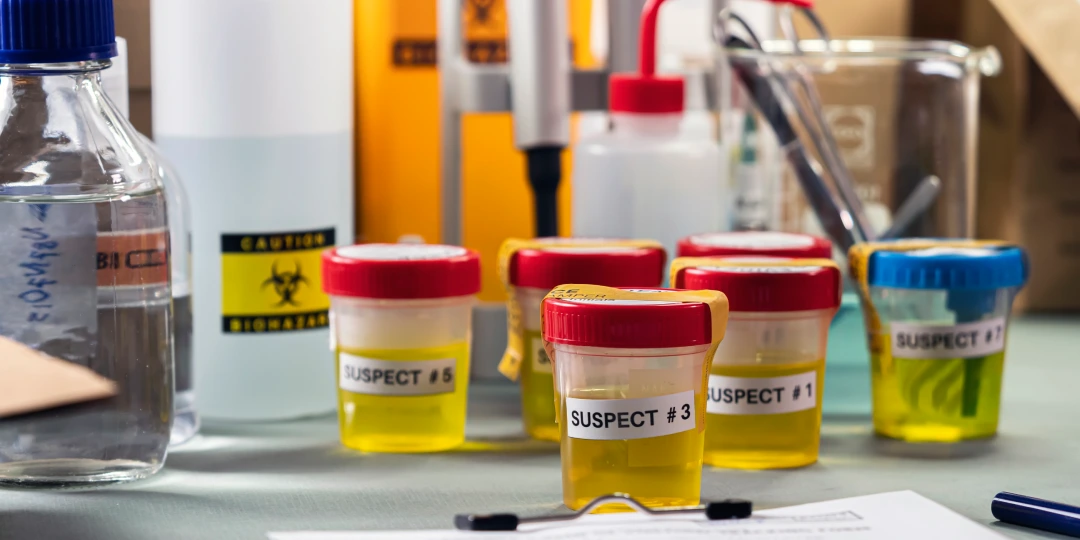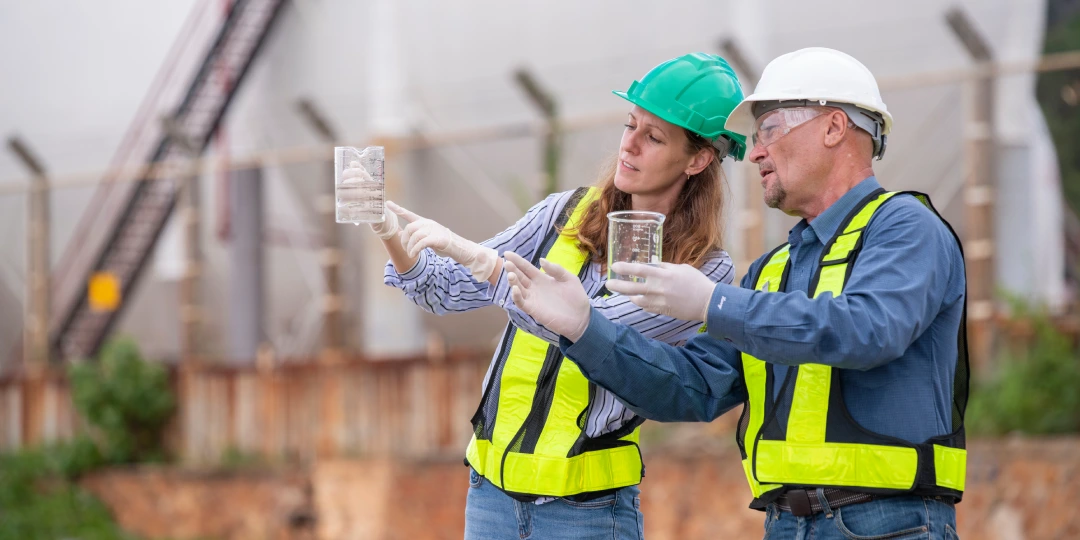Introduction: Elevating Safety in the Nashville Construction Landscape
Nashville’s construction sector is experiencing unprecedented growth, fueled by both public and private investments. Cranes dot the skyline, new infrastructure projects launch regularly, and the demand for skilled labor continues to surge. In such an environment, the emphasis on speed and scale can often eclipse fundamental principles like worker well-being and operational safety. Yet amid this backdrop, Division One Safety stands out—not by building faster, but by building smarter and safer. Its drug-free policy is emblematic of that mindset, woven into the fabric of its culture and daily operations.
Safety on job sites cannot be achieved through equipment and engineering controls alone; it requires disciplined human behavior. This is where Division One differentiates itself. Recognizing that even a single impaired individual can compromise the integrity of an entire crew, the company treats job site sobriety as a non-negotiable standard. By taking a proactive approach to substance use prevention, it elevates safety from a compliance requirement to a shared value system. The result is a work environment defined not just by its productivity, but by the mutual care and vigilance of its people.
Division One’s commitment to a drug-free workplace is more than a policy—it is a leadership statement. In choosing to enforce stringent safety protocols, the company has positioned itself as a steward of ethical progress within Nashville’s evolving construction ecosystem. It has demonstrated that the future of construction in the South isn’t just about how tall a building can rise, but how responsibly and sustainably it is constructed from the ground up. Division One is not reacting to safety concerns; it is anticipating them, setting an example for others to follow.
The Role of a Drug-Free Workplace in High-Risk Industries
Construction is a domain where the margin for error is perilously slim. Unlike many other industries, a lapse in judgment or a delayed reaction can lead to immediate and severe consequences—ranging from equipment damage to catastrophic injury. The presence of intoxicating substances amplifies these risks exponentially. A single compromised decision made under the influence can unravel weeks of planning and jeopardize countless lives. In this context, the significance of a drug-free workplace cannot be overstated; it is a cornerstone of operational integrity in high-risk environments.
The effects of drugs and alcohol on motor skills, cognitive processing, and emotional regulation are well-documented. On construction sites, where employees often operate heavy machinery, handle electrical systems, or work at great heights, even minor impairments can have major repercussions. Misused prescription medications—often overlooked in traditional policy structures—pose a particularly insidious threat. Division One’s policy is designed to recognize and address these subtleties, ensuring comprehensive coverage rather than reactive enforcement. The company treats substance use not just as a safety issue, but as a systemic risk that must be mitigated through diligence and foresight.
In industries like construction, where external factors such as weather conditions, project deadlines, and labor shortages already create volatile working conditions, minimizing internal risk factors is essential. A drug-free workplace policy contributes to a more stable, predictable operational environment. It ensures that workers can trust their colleagues, that supervisors can rely on their teams, and that clients can expect consistent outcomes. Division One understands that safety is not static—it is a discipline that must be actively preserved, and its drug-free policy serves as a critical mechanism for doing just that.
Division One’s Safety Ethos: More Than Compliance
Many organizations adopt drug-free workplace policies out of obligation—ticking boxes to satisfy insurance requirements or regulatory standards. Division One approaches safety with a profoundly different lens. For this company, policy is an articulation of purpose. The drug-free mandate is not an isolated rule but an expression of the organization’s belief in the dignity and value of human life. Compliance, while necessary, is merely the floor. Division One reaches for a much higher ceiling: cultivating a safety-first culture that infuses every aspect of its operations.
The ethos behind Division One’s approach begins with leadership. Executives and project managers alike champion a vision where safety and productivity coexist without compromise. By elevating drug-free expectations to a leadership priority, the company sends a strong message—it is not enough to complete projects on time and under budget; they must also be completed responsibly and ethically. Workers are not just laborers on a payroll, but professionals whose well-being and contributions are respected and protected through intentional policies.
This deeper safety philosophy permeates the organization from top to bottom. From onboarding new employees to conducting project debriefs, the emphasis on sobriety and vigilance is ever-present. Division One does not settle for a reactive posture in addressing safety breaches. Instead, it operates with foresight and resilience, anticipating challenges before they arise. The result is not just compliance—it’s credibility. Clients, subcontractors, and employees all recognize that when Division One is on the job, integrity is built into every brick.

The Mechanics of Division One’s Drug-Free Policy
A policy is only as effective as its implementation. Division One understands this, which is why its drug-free policy is supported by a robust, multilayered operational framework. Rather than relying on sporadic enforcement or vague directives, the company has developed precise protocols that ensure consistency, fairness, and transparency across all job sites. This includes mandatory pre-employment screenings, regular random testing, and structured response plans for any violations. Every measure is designed to maintain both accountability and trust.
The clarity of the policy begins at the hiring stage. Every new team member undergoes thorough screening, setting a precedent from day one. This early investment communicates seriousness of intent and deters those who may not be prepared to uphold the company’s standards. From there, regular, unannounced drug testing acts as both a deterrent and a quality control mechanism, ensuring ongoing compliance. Importantly, testing is conducted in a way that respects employee dignity while reinforcing a culture of collective responsibility.
Beyond testing, Division One integrates documentation, incident reporting, and escalation procedures that leave no room for ambiguity. Supervisors receive specific training on how to identify warning signs, navigate sensitive conversations, and take appropriate action. The policy extends into disciplinary procedures as well, offering clear pathways for resolution or, if necessary, separation. These mechanics do not function in isolation—they are woven into the rhythm of everyday site management. It’s this deliberate structure that transforms policy from paper into practice.
Proactive Testing and Zero-Tolerance Enforcement
Division One’s approach to workplace drug testing is distinctly proactive. Rather than waiting for incidents or complaints to trigger a response, the company emphasizes prevention as its primary defense. Randomized testing occurs regularly across all levels of the workforce—not just frontline laborers, but supervisors and administrative personnel as well. This universal application strengthens the message that safety is a shared, non-negotiable commitment, not a selective enforcement tool.
Zero-tolerance is not just a phrase at Division One—it’s a standard. Employees found in violation of the policy face immediate consequences, up to and including termination. While the company believes in compassion and the value of rehabilitation, it does not compromise on-site safety for the sake of leniency. In environments where lives are quite literally on the line, hard lines must be drawn. The consistent enforcement of this stance reinforces credibility among team members and ensures that everyone understands the stakes.
However, the zero-tolerance policy is implemented with precision and humanity. Division One ensures that all testing procedures are legally compliant, confidential, and professionally administered. Employees are informed of their rights and responsibilities, and support is available for those who seek help before a violation occurs. The policy, while firm, is not punitive for its own sake—it is protective, designed to maintain the sanctity of the workplace. This equilibrium of strictness and fairness makes Division One a leader not only in enforcement but in principled leadership.
Training and Education: Building a Culture of Accountability
Sustainable safety isn’t born from enforcement alone; it is cultivated through continuous learning. Division One places a premium on education, ensuring every employee—from senior project managers to day-one laborers—understands not just the “what” of the drug-free policy, but the “why.” Training sessions go beyond regulatory basics to explore the real-world consequences of impairment on job sites. Workers learn how substance use impacts coordination, decision-making, and group dynamics—turning abstract policy into practical awareness.
Training is conducted regularly and with intention. New hires are onboarded with comprehensive orientations that outline expectations clearly and respectfully. Supervisors are given additional leadership-level coaching to help them recognize behavioral warning signs and intervene constructively. Refresher courses are scheduled throughout the year to reinforce key messages and adapt to new challenges in the field, such as evolving drug trends or changes in state legislation. These sessions are interactive and data-driven, making them relevant and impactful for a workforce that thrives on clear, tactical information.
Perhaps most importantly, the educational efforts foster a sense of ownership. Rather than relying solely on top-down directives, Division One encourages a shared sense of vigilance. Employees are empowered to speak up, report concerns, and look out for one another. This culture of accountability doesn’t happen by accident—it is the direct result of an organization investing in its people’s understanding. When team members comprehend both the ethical and operational stakes of safety, they don’t just follow the rules—they believe in them.

Psychological Safety and Workforce Morale
Safety extends beyond the physical. Psychological safety—knowing that one’s environment is predictable, respectful, and free of avoidable risk—is just as critical. Division One’s drug-free workplace policy contributes powerfully to this unseen but deeply felt aspect of job site culture. Workers know that they are surrounded by peers who are present, sober, and engaged. This stability creates a sense of collective trust, reducing anxiety and allowing teams to focus fully on their tasks.
When employees feel secure, their performance naturally improves. Crew members become more collaborative, communication becomes more fluid, and productivity rises. But the benefits go deeper: morale strengthens. There is a unique pride in being part of a team where discipline is upheld and every person’s safety is taken seriously. Workers feel valued not just for their labor, but for their role in maintaining the integrity of the job site. That sense of belonging reduces turnover and boosts engagement—two outcomes that are especially critical in an industry facing skilled labor shortages.
Division One also understands the emotional toll of high-risk environments. Construction can be mentally taxing, and personal challenges don’t disappear at the site gate. By enforcing a clear, consistent drug-free policy, the company helps shield employees from the unpredictable behavior that substance use can trigger. Fewer confrontations. Fewer near-misses. More peace of mind. In this way, the policy supports not only operational safety, but emotional resilience. It builds a healthier, more dependable workforce from the inside out.
Operational Excellence Through Risk Mitigation
Every incident avoided is a gain in productivity, cost-efficiency, and reputation. Division One’s drug-free policy plays a vital role in the company’s commitment to operational excellence. By removing one of the most significant variables in workplace risk—substance impairment—the company ensures a smoother, more controlled workflow. Time isn’t lost to accident investigations, insurance claims, or emergency staffing changes. Projects stay on schedule, and resources are optimized.
The financial implications of this risk mitigation are substantial. Reduced accidents mean fewer workers’ compensation claims and lower insurance premiums. Fewer delays translate into tighter budget adherence and improved client satisfaction. But perhaps most notably, this operational predictability allows Division One to take on complex, high-profile projects with confidence. Clients know they are engaging a partner who takes every precaution to deliver results without compromise.
Beyond cost savings and efficiency, the drug-free policy enhances decision-making across the board. When every team member is mentally sharp and emotionally stable, quality control improves. Mistakes are caught earlier. Tools are used properly. Safety procedures are followed meticulously. In short, a drug-free workforce is an effective workforce. At Division One, this understanding is embedded into the company’s DNA—proving that operational excellence doesn’t come from cutting corners, but from creating conditions where people can perform at their best.
Community Trust and Client Confidence
In the construction industry, reputation is built not only on the strength of structures but on the integrity of the company behind them. Division One’s unwavering drug-free policy has become a powerful differentiator in the eyes of clients and the broader Nashville community. When stakeholders select a contractor, they are entrusting lives, budgets, and timelines to that firm. Division One’s safety-first reputation—anchored by its substance-free workplace—translates directly into trust.
Clients are increasingly prioritizing risk reduction when choosing construction partners. A transparent and strictly enforced drug-free policy signals professionalism, foresight, and accountability. Division One demonstrates that safety is not treated as an internal checklist but as a brand value. That distinction instills confidence, particularly among developers, municipalities, and commercial property owners with reputational concerns of their own. Partnering with a firm that upholds such uncompromising standards becomes a strategic advantage, not just a contractual decision.
But the ripple effects extend beyond the client relationship. The local community—residents, neighbors, civic leaders—take note of how companies conduct themselves on major job sites. Division One’s visible commitment to a drug-free workforce reinforces its standing as a responsible corporate citizen. The company doesn’t just build within Nashville; it builds for Nashville. That community stewardship enhances goodwill, opens doors for future projects, and contributes to a healthier, safer urban landscape overall.

Frequently Asked Questions
1. What makes Division One’s drug-free policy different from other construction firms in Nashville?
Division One’s drug-free policy stands apart due to its comprehensive and proactive nature. Unlike companies that adopt minimal policies for compliance purposes, Division One implements a zero-tolerance framework supported by regular training, randomized testing, and clearly defined disciplinary procedures. This policy is embedded into the company’s culture, reinforcing a deep commitment to workforce safety, client trust, and operational excellence.
2. How does Division One Safety ensure that subcontractors comply with its drug-free standards?
Division One mandates that all subcontractors and partner firms align with its drug-free policy as a condition of collaboration. This includes submitting to pre-employment screening, participating in random testing, and following clear reporting and enforcement protocols. Subcontractors who fail to meet these standards risk termination from active projects, ensuring consistency and accountability across all job site personnel.
3. What benefits does a drug-free workplace provide to Division One clients?
Clients benefit from Division One Safety’s drug-free policy through reduced project risk, fewer delays, and improved safety performance. The policy contributes to higher workforce morale, fewer job site incidents, and stronger project execution overall. Additionally, clients can trust that Division One prioritizes ethical responsibility and legal compliance, offering peace of mind throughout the construction process.

Conclusion: A Model for Construction Safety in the South
Division One’s drug-free policy is more than an internal guideline—it is a defining principle that shapes every job site, partnership, and project outcome. In an industry where margins are tight and risks are high, the company has made a deliberate choice to prioritize human safety over expediency. That choice has not only elevated its operational standards but has positioned Division One Safety as a benchmark for excellence in Nashville’s rapidly evolving construction landscape.
By integrating rigorous enforcement with proactive education and clear accountability, Division One Safety has built a culture where safety is not imposed—it is embraced. The company’s influence extends beyond its own workforce, challenging subcontractors, suppliers, and industry peers to rise to the same level of integrity. In doing so, Division One is not just protecting its workers—it is shaping the future of construction in Tennessee and beyond.
As Nashville continues to grow, the need for principled leadership in construction becomes increasingly urgent. Division One has answered that call with conviction, demonstrating that a drug-free workplace isn’t just a policy—it’s a pathway to trust, performance, and long-term success. For companies seeking to build smarter, safer, and with purpose, Division One Safety stands as a compelling model of what is possible when safety is treated as a standard—not a slogan.


